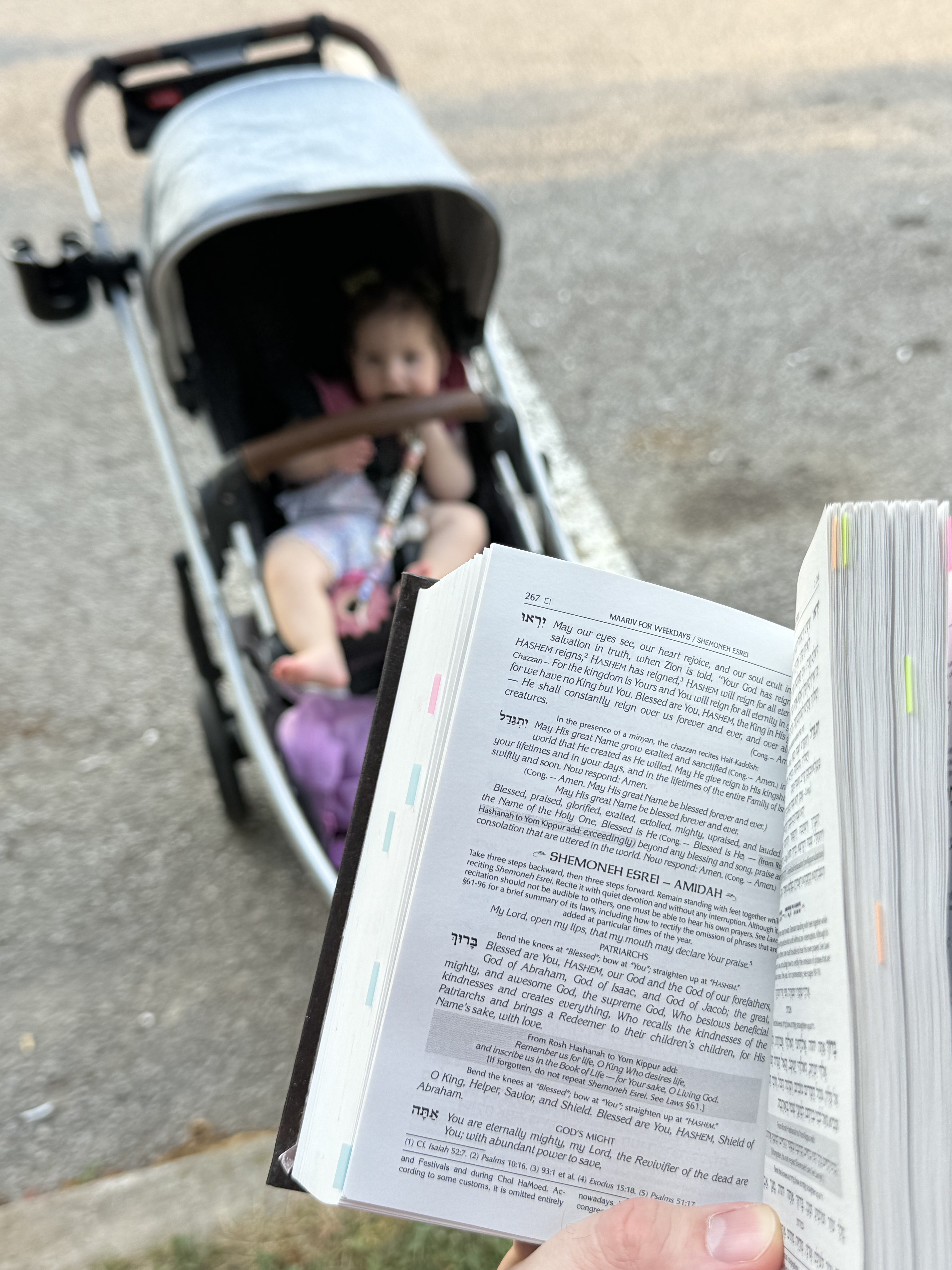Watch
Events
Articles
Market
More
The honest and perceptive student of
Scripture realizes that faith in the days of the apostles was vastly different from the maze of today’s conflicting, confused, and convoluted denominational structure commonly called “denominationalism.”
https://blog.messiahslove.com/....2022/02/25/denominat



After work, I took my baby daughter to the local donut shop, Tim Hortons, and we had a little time inside, and then shared Arvit prayers together outside with reading and singing. #siddur #prayer #parenting




And in this way all Israel will be saved, as it is written, “The Deliverer will come from Zion, he will banish ungodliness from Jacob”.
Romans 11:26 ESV
The hardening of Israel wasn’t just to encourage the grafting in of Gentiles, but to hasten the redemption of Israel. If they were allowed to go on as they were, they would have grown in their pride and indifference.
The hardening of Israel leads to exile, which leads to suffering, which leads to repentance, which leads to restoration. The silversmith doesn’t remove dross from the silver by being nice and affirming. If he cares about the metal at all, he refines it through fire.



Do we trust the Holy Spirit? If so, why do we want to do His work for Him? As Barry Phillips and David Jones explain, we tend to do that when we try to correct others in ways that seem good to us, but might not be what our Heavenly Father prefers.
https://www.buzzsprout.com/229....2194/episodes/173666



Do we trust the Holy Spirit? If so, why do we want to do His work for Him? As Barry Phillips and David Jones explain, we tend to do that when we try to correct others in ways that seem good to us, but might not be what our Heavenly Father prefers.
https://www.buzzsprout.com/229....2194/episodes/173666



...A partial hardening has come upon Israel, until the fullness of the Gentiles has come in.
Romans 11:25 ESV
God used the predisposition of the Jews to reject the Messiah to bring the good news of the Kingdom to the nations so that they might be blessed by Abraham’s seed scattered across the world. When the time is right, when God is done calling out to the nations and is ready to revive the genetic descendants of Jacob, he will sand off that callus, and they will know the truth.
(This is not Dispensationalism.)



No services this week. Alternative fellowship info in our newsletter. Please sign up while you're there if you haven't. It is hard to find you all!
https://mailchi.mp/firstcentur....ychristianity/no-ser


